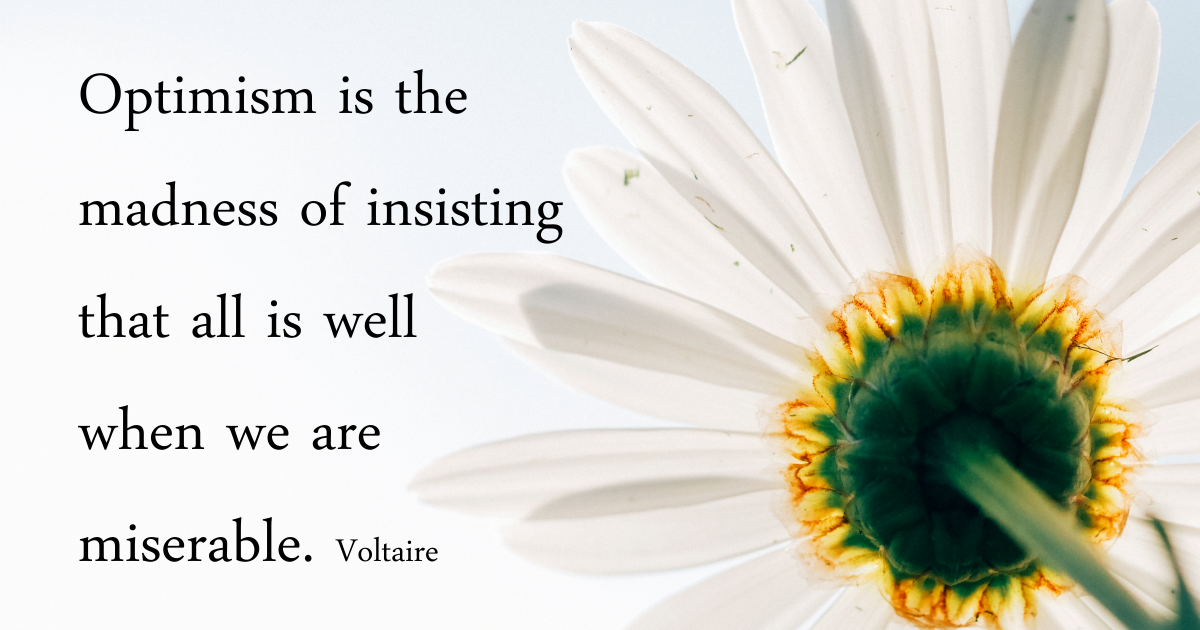










Popular Articles
Crazy-Makers: Dealing with Passive-Aggressive People
Why Are People Mean? Don't Take It Personally!
Struggling to Forgive: An Inability to Grieve
The Secret of Happiness: Let It Find You (But Make the Effort)
20 Steps to Better Self-Esteem
7 Rules and 8 Methods for Responding to Passive-aggressive People
What to Do When Your Jealousy Threatens to Destroy Your Marriage
Guide to How to Set Achieveable Goals
Catastrophe? Or Inconvenience?
Popular Audios
Audio Version of Article: Crazy-Makers: Passive-Aggressive People
Audio Version of Article: Why Are People Mean? Don't Take It Personally!
PsychNotes April 2017
by Monica A. Frank, Ph.D.
Clinical and Sport Psychologist

Index
Previous
Next
April 28, 2017
I never pity anyone because I believe everyone is capable of great strength.
As a psychologist it is my job to help people find that strength. It is not my job to protect them from life's adversities. If I feel sorry for my clients it implies that I don't believe they are capable which only affirms their fear.
As a parent it is my duty to help my child find that strength. If I overprotect my child and don't allow him to navigate the rough waters of life, I essentially don't allow him to find the strength and capability within himself. Read more...
Compassion, Not Pity
As a psychologist it is my job to help people find that strength. It is not my job to protect them from life's adversities. If I feel sorry for my clients it implies that I don't believe they are capable which only affirms their fear.
As a parent it is my duty to help my child find that strength. If I overprotect my child and don't allow him to navigate the rough waters of life, I essentially don't allow him to find the strength and capability within himself. Read more...

April 27, 2017
Schools should start later to prevent accidents, depression, scientists say
Poor sleep in anxiety, depression may make it harder to see positive
Studies Question Link Between Mom's Antidepressant Use, Autism in Kids
A New, More Rigorous Study Confirms: The More You Use Facebook, the Worse You Feel
What to Do When a Colleague Excludes You
Psychotherapy normalizes brain changes linked to social anxiety disorder
More links...
PsychNews
Links to news articles based on psychological research:
More links...

April 26, 2017
Many studies have shown that thinking influences the experience of pain. It's not that the pain is “all in the head” but that certain kinds of thoughts will make the existing pain worse. In fact, two primary styles of thinking tend to increase the level of pain for those with chronic pain:
1) Catastrophizing. Thinking that focuses on how awful the pain is or how much it has ruined your life is shown to make pain worse.
2) Control. Feelings of helplessness and thoughts how not being able to control the pain or to be able to escape it worsens pain.
Research in recent years shows, however, that it is not just what you are thinking but how you process the thoughts that can affect the level of pain you experience. Read more...
It's Not What You Think But Also How You Think That Affects Chronic Pain
1) Catastrophizing. Thinking that focuses on how awful the pain is or how much it has ruined your life is shown to make pain worse.
2) Control. Feelings of helplessness and thoughts how not being able to control the pain or to be able to escape it worsens pain.
Research in recent years shows, however, that it is not just what you are thinking but how you process the thoughts that can affect the level of pain you experience. Read more...

April 24, 2017
For many people anxiety feels intolerable. The unpleasant symptoms of agitation seem like they will never go away. It feels out-of-control and scary. One of the common statements they make is
"I can't stand this!"
People without an anxiety disorder often don't understand the level of intensity and how awful it can feel. They equate panic with being the same as a high level of normal anxiety. As a result, their attempts to comfort fall short and may even seem patronizing: "It'll be okay. You can get through this. You just need to calm down."
However, they aren't entirely wrong because the inability to tolerate the anxiety makes the anxiety worse. What they are wrong about, though, is believing the anxiety is under the individual's control and due to an inability to handle normal anxiety. Read more...
Developing Tolerance of Anxiety
People without an anxiety disorder often don't understand the level of intensity and how awful it can feel. They equate panic with being the same as a high level of normal anxiety. As a result, their attempts to comfort fall short and may even seem patronizing: "It'll be okay. You can get through this. You just need to calm down."
However, they aren't entirely wrong because the inability to tolerate the anxiety makes the anxiety worse. What they are wrong about, though, is believing the anxiety is under the individual's control and due to an inability to handle normal anxiety. Read more...

April 20, 2017
One common problem for those with depression is the inability to think clearly. However, the research shows that understanding this problem is complex. In fact, with certain types of tasks people with clinical depression exceed the abilities of those without depression.
How is that possible? It may be that people with depression are more greatly impacted by problems with motivation than with an inability to reason. In particular, it is possible that the depressive's pessimism and desire for control actually improves analytical reasoning and decision-making under certain conditions. Read more...
Something Good About Depression?
How is that possible? It may be that people with depression are more greatly impacted by problems with motivation than with an inability to reason. In particular, it is possible that the depressive's pessimism and desire for control actually improves analytical reasoning and decision-making under certain conditions. Read more...

April 5, 2017
The sweetest thing my husband ever said to me is that I am his best friend. It seems that the best, and most enduring, marriages have friendship as a foundation. Although passion is also an important part of the relationship, passion without friendship doesn't seem to last.
If you think about the nature of best friendship, it makes sense that a marriage based on these qualities is one that withstands hardships and delights in the good times.
2) Cooperative. Best friends make decisions together about the direction of the friendship--one person is not in charge of the relationship. Friends don't try to control one another. Sure, they may not have to make the kind of life decisions required of a married couple, but good marriages have this same quality. Read more...
The Essence of a Good Marriage: Friendship
If you think about the nature of best friendship, it makes sense that a marriage based on these qualities is one that withstands hardships and delights in the good times.
Qualities of best friendship
1) Mutual respect. Good friends have a strong desire to maintain the relationship which is based upon respect for one another. Friends admire the other without jealousy or pettiness.2) Cooperative. Best friends make decisions together about the direction of the friendship--one person is not in charge of the relationship. Friends don't try to control one another. Sure, they may not have to make the kind of life decisions required of a married couple, but good marriages have this same quality. Read more...

April 4, 2017
A Tiny Spot In Mouse Brains May Explain How Breathing Calms The Mind
Combining opioids with anti-anxiety medicines linked to greater risk of overdose
Suicide often leaves mental, physical woes in surviving spouse
Study: Combined neurofeedback and HRV training can improve anxiety, depression symptoms
Hold That Pose: Yoga May Ease Tough Depression
UVA researchers use probiotic bacteria in yogurt to reverse depression symptoms
More links...
PsychNews
Links to news articles based on psychological research:
More links...

April 3, 2017
Excellent question because it reflects how Cognitive-Behavioral Therapy (CBT) is commonly misunderstood when simplified versions of CBT become maxims such as “Fake it til you make it.”
New article! Understanding the Act “As If” Concept for Anxiety Treatment
Question: I've been reading your articles for some time and while I've made some progress in becoming less anxious, I still have trouble behaving the way I want to when I feel anxious. I think this is referred to as “Act as if” in CBT.
I think the main reason or issue behind it is that I see emotions as a true reflection of myself, at least in that particular moment. My question is, would you mind making a comment on “Act as if”' without relating it to “Fake it til you make it”? Since being real towards myself is quite important to me, I personally can't stand “Fake it til you make it” approach.*
I think the main reason or issue behind it is that I see emotions as a true reflection of myself, at least in that particular moment. My question is, would you mind making a comment on “Act as if”' without relating it to “Fake it til you make it”? Since being real towards myself is quite important to me, I personally can't stand “Fake it til you make it” approach.*
Excellent question because it reflects how Cognitive-Behavioral Therapy (CBT) is commonly misunderstood when simplified versions of CBT become maxims such as “Fake it til you make it.”
What is the difference between “act 'as if'” and “fake it til you make it”?
First, let's review what acting “as if” means for learning to manage anxiety. This reader is referring to the “50 Tools for Panic and Anxiety”: Read more...















 In a sense, act “as if” is similar to “fake it til you make it” but only in the way that clinical depression is similar to sadness (see my article
In a sense, act “as if” is similar to “fake it til you make it” but only in the way that clinical depression is similar to sadness (see my article 



